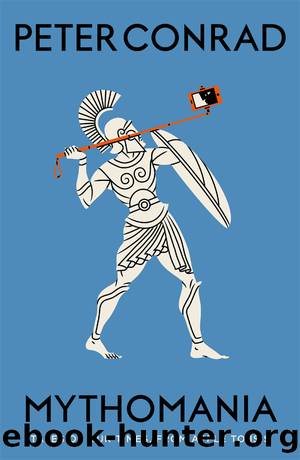Mythomania by Peter Conrad

Author:Peter Conrad
Language: eng
Format: epub
ISBN: 9780500773550
Publisher: Thames & Hudson
Published: 2016-07-12T16:00:00+00:00
UTTERLY OYSTER
Since the 1950s, what Barthes called mystification – exemplified by the deifying of the Citroën as a Déesse or the frothy spirituality attributed to Omo – has come to be known as branding. Rather than alluding to religion, the word invokes the branding of cattle, which are held down while a monogram that signifies ownership is seared into their flesh. The aim is certainly proprietorial, but the violence of the act seems too blatant for an economy that aims to seduce consumers. Commercial branding therefore relies on subtler tactics: it incites poetic reveries that flit around a product without ever fastening onto it.
What, for instance, does a trip on a bus or train have in common with an oyster? Nothing at all. Nevertheless, in 1998 Transport for London – once called London Transport, before the nouns were transposed and the preposition inserted to make the business sound more devoted to its mission – hired an expensive team of experts to confer an identity on its new electronic ticket. The branders decided that it would be called the Oyster card, and in doing so they proved the truth of Barthes’ contention that anything at all can be a myth.
Tickets have not always needed such fanciful designations. On the London Underground, they used to be thumb-shaped stubs of cardboard with prices printed on them, collected at the end of your journey by uniformed inspectors sitting in sentry boxes. On London buses they were strips of paper, churned out by conductors from a hurdy-gurdy they wore around their necks. Now you carry a pre-paid plastic card with no visible evidence of value on its surface; an electronic pad reads it, does a quick calculation to assess whether you can afford to travel, and decides whether to admit or debar you. No human interaction takes place, unless you need to ‘seek assistance’ – as the bossy little sign on the closed gate orders – which is generally a euphemism for your lack of credit.
When Jean-Paul Sartre first ventured down into the New York subway in the 1940s, he came up against an existential frontier. He baulked at dropping a nickel into a slot to operate the turnstile that would let him onto the platform: to do so, he feared, meant sacrificing individuality in order to be ‘elevated … to the impersonality of the Universal’, changing from a person to a unit. His scruples may have seemed absurd at the time, but the ‘readers’ now installed in train stations and on buses in cities around the world insist on electronic reconnaissance and recognition. It’s open to question whether we are elevated by the procedure: surely it is more like a demotion, since we are submitting to scrutiny by a machine. The brisk automatism of the procedure is what makes the Oyster card’s designation seem so otiose and obscure.
The Oyster’s branders took a positive pride in the whimsicality of the name they selected. At least the New York equivalent, the MetroCard, gives you some clue
Download
This site does not store any files on its server. We only index and link to content provided by other sites. Please contact the content providers to delete copyright contents if any and email us, we'll remove relevant links or contents immediately.
| Africa | Americas |
| Arctic & Antarctica | Asia |
| Australia & Oceania | Europe |
| Middle East | Russia |
| United States | World |
| Ancient Civilizations | Military |
| Historical Study & Educational Resources |
Magic and Divination in Early Islam by Emilie Savage-Smith;(1433)
Ambition and Desire: The Dangerous Life of Josephine Bonaparte by Kate Williams(1254)
Papillon by Henry Charrière(1239)
Bohemians, Bootleggers, Flappers, and Swells: The Best of Early Vanity Fair by Bohemians Bootleggers Flappers & Swells- The Best of Early Vanity Fair (epub)(1215)
Operation Vengeance: The Astonishing Aerial Ambush That Changed World War II by Dan Hampton(1097)
Twelve Caesars by Mary Beard(1087)
What Really Happened: The Death of Hitler by Robert J. Hutchinson(1057)
London in the Twentieth Century by Jerry White(1018)
Time of the Magicians by Wolfram Eilenberger(1010)
Twilight of the Gods by Ian W. Toll(1002)
The Japanese by Christopher Harding(988)
Lenin: A Biography by Robert Service(954)
The Devil You Know by Charles M. Blow(917)
Freemasons for Dummies by Hodapp Christopher;(877)
A Social History of the Media by Peter Burke & Peter Burke(871)
The Churchill Complex by Ian Buruma(847)
The Rise and Triumph of the Modern Self by Unknown(844)
Napolean Hill Collection by Napoleon Hill(842)
Henry III by David Carpenter;(822)
